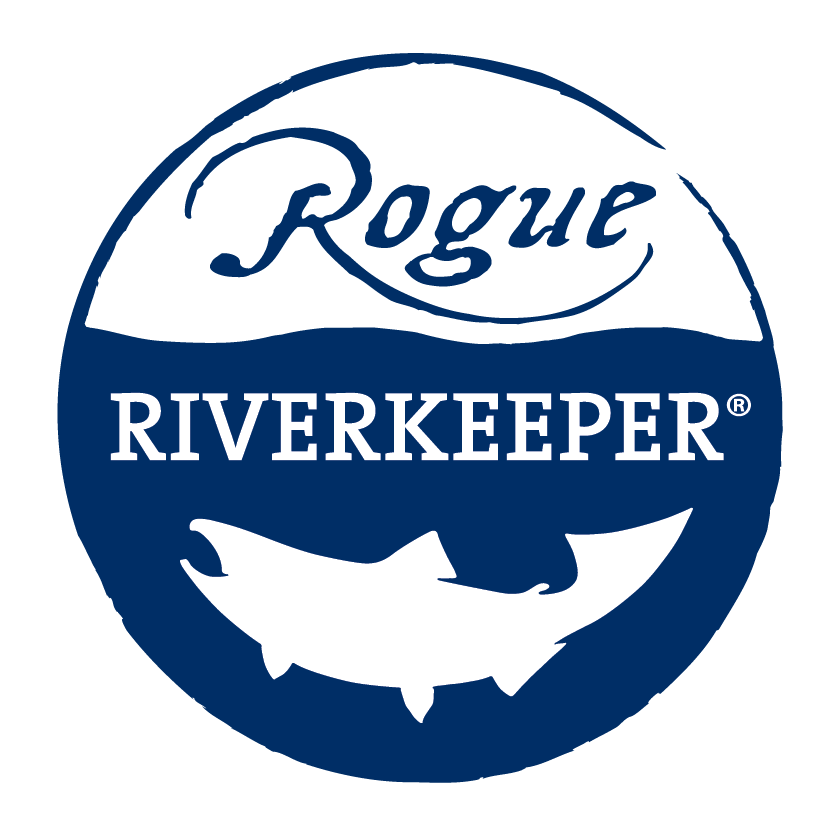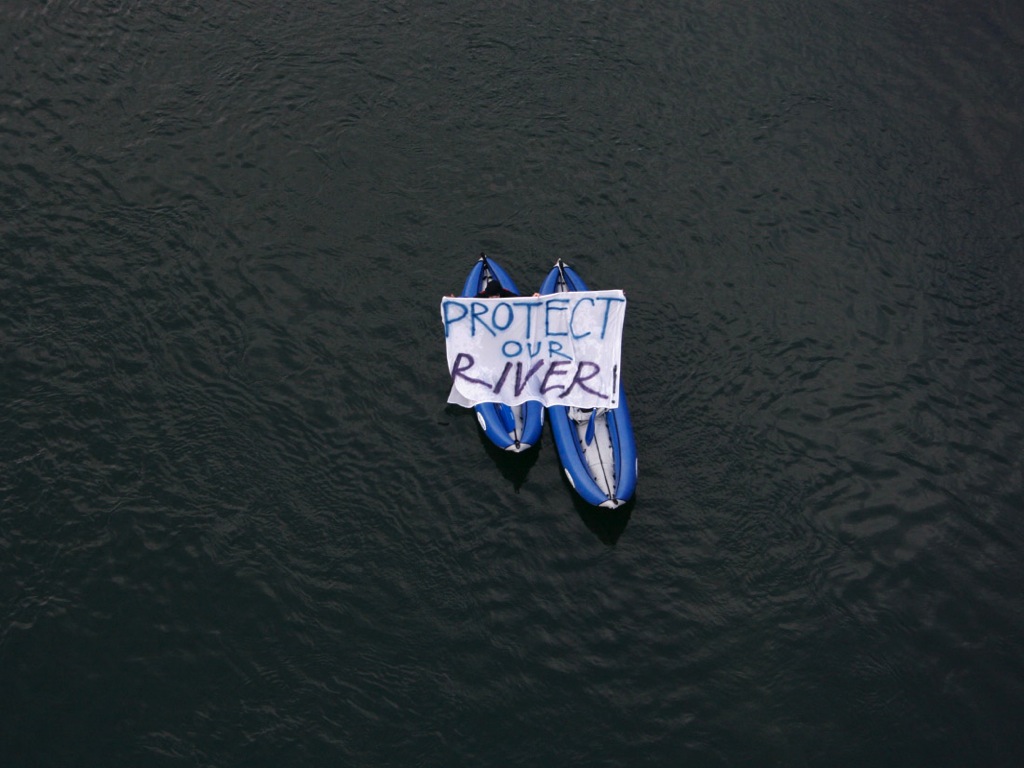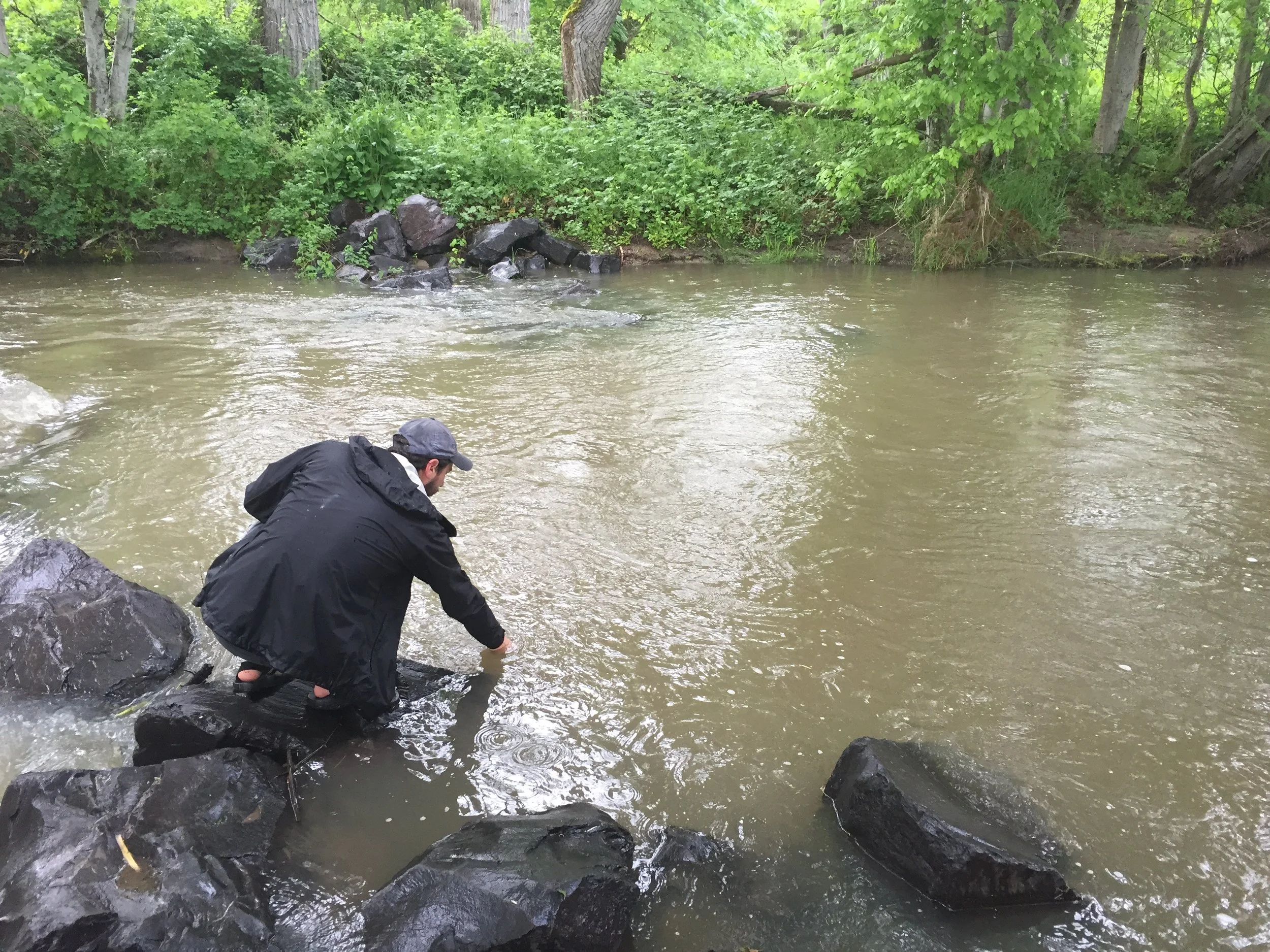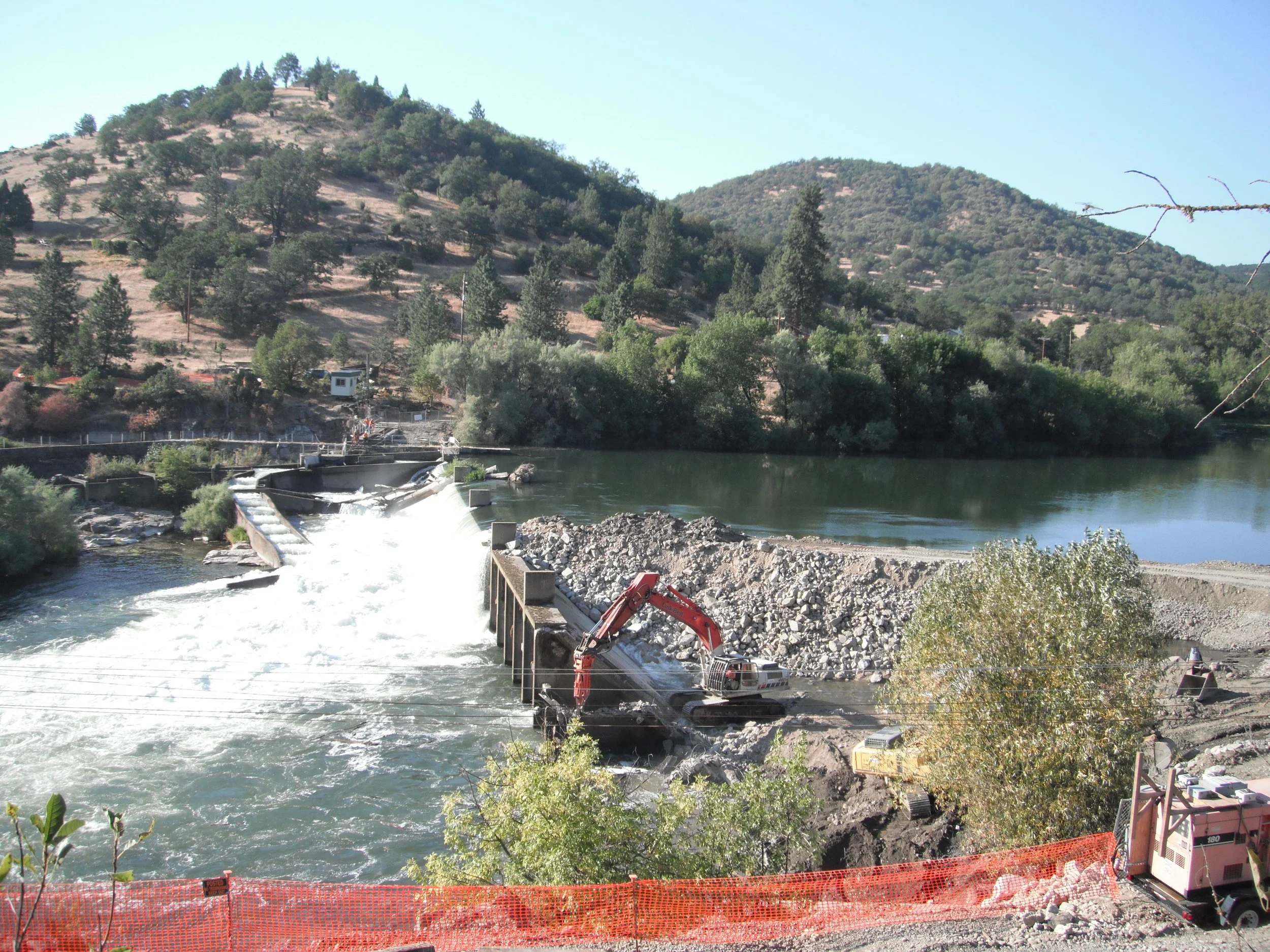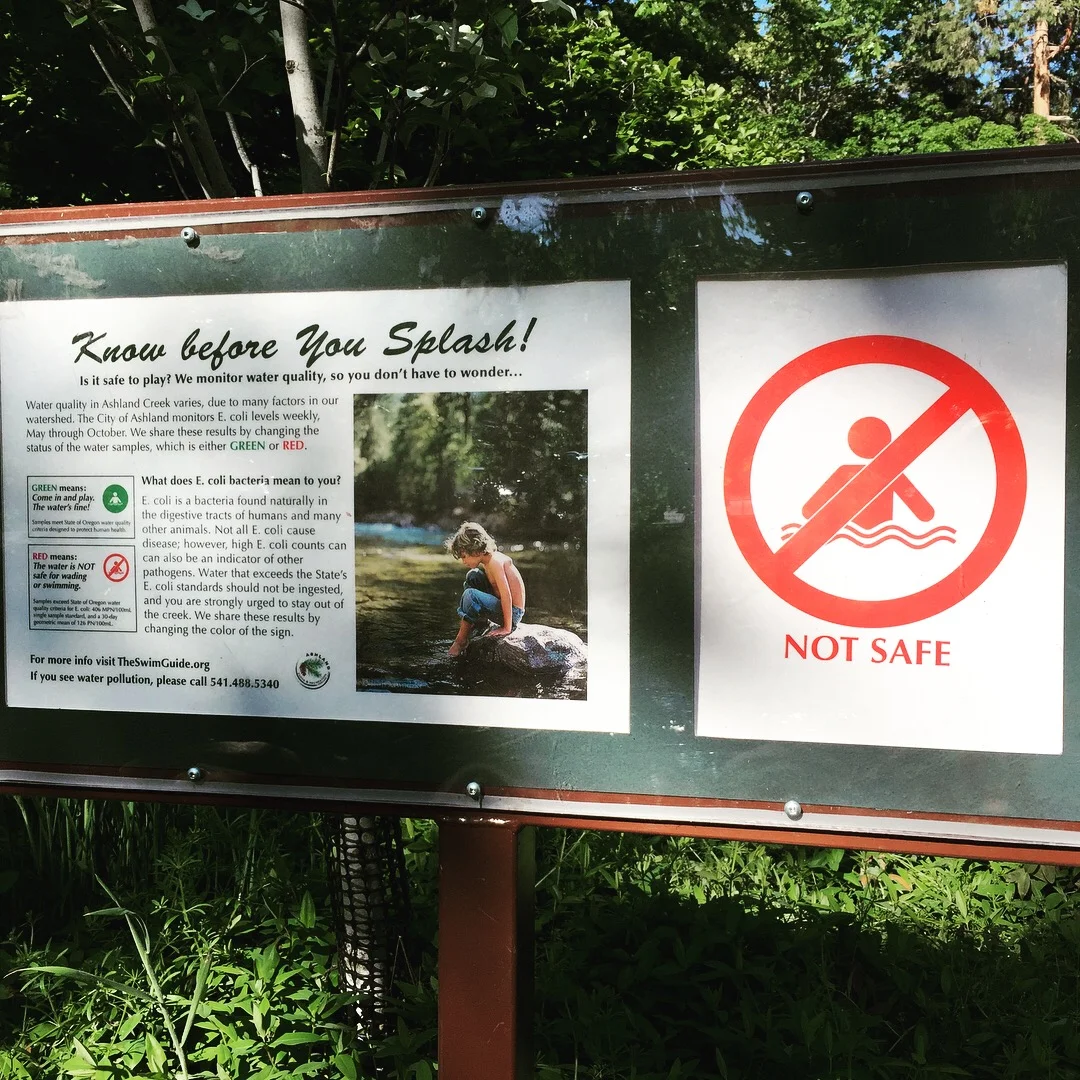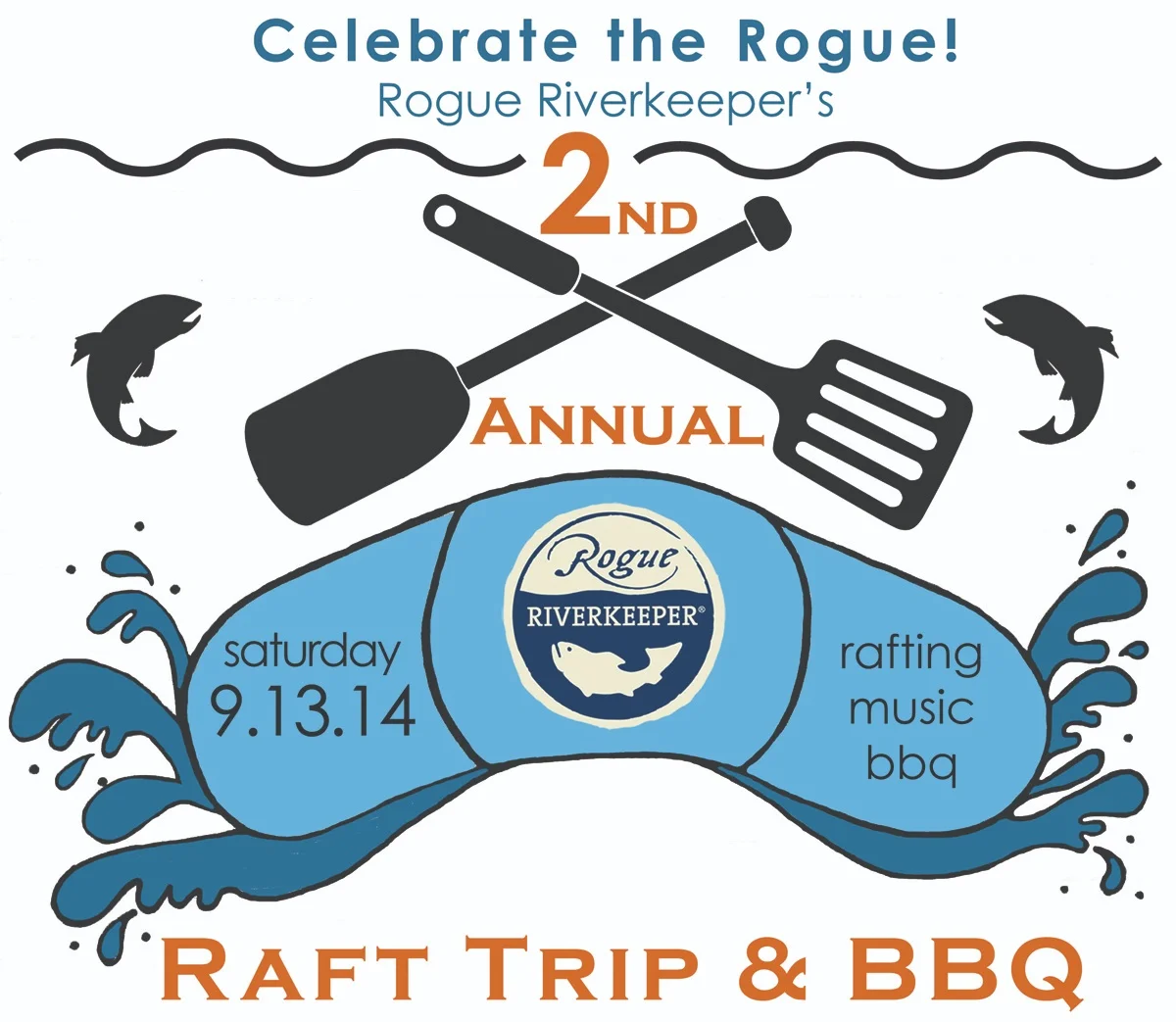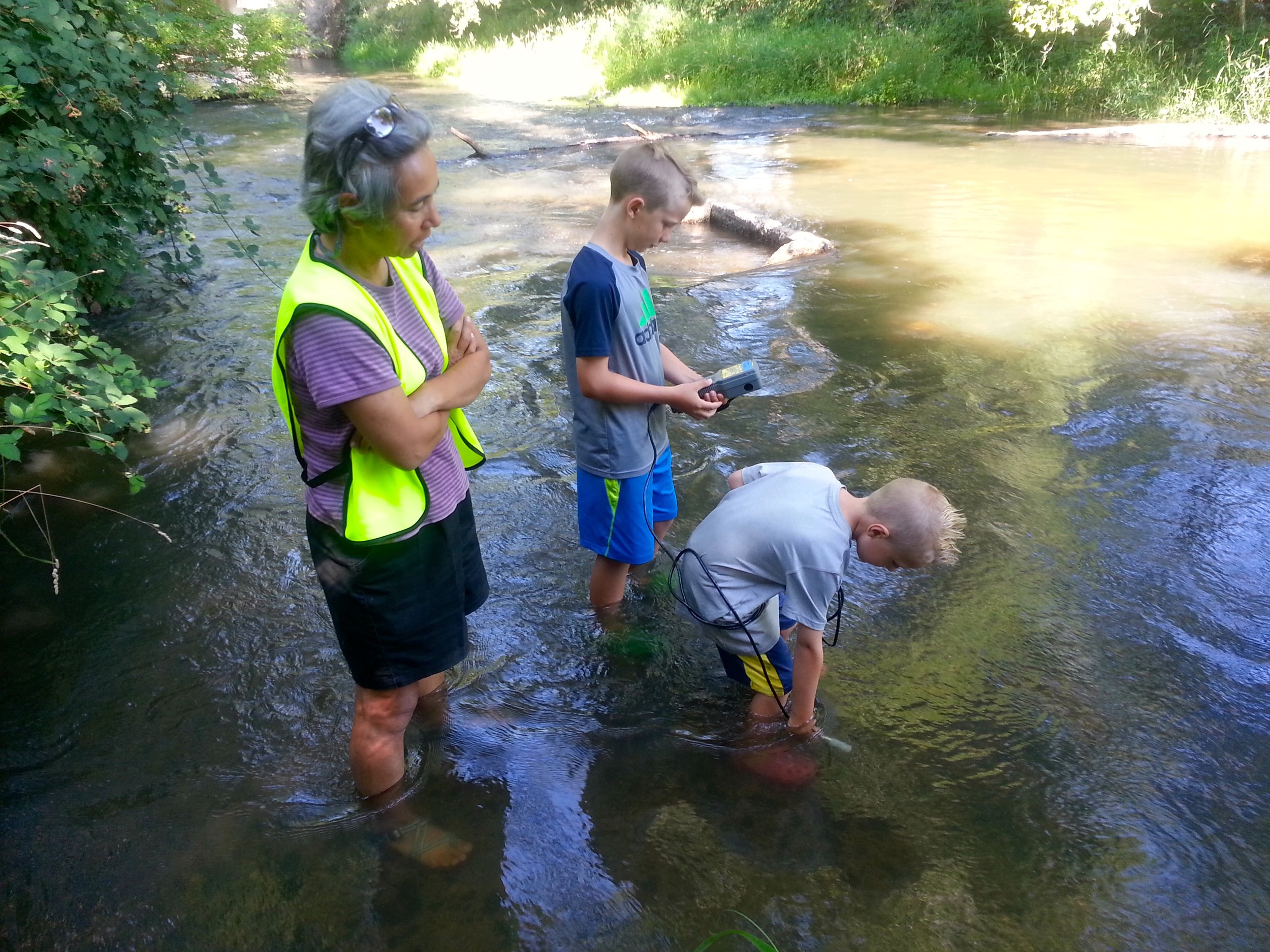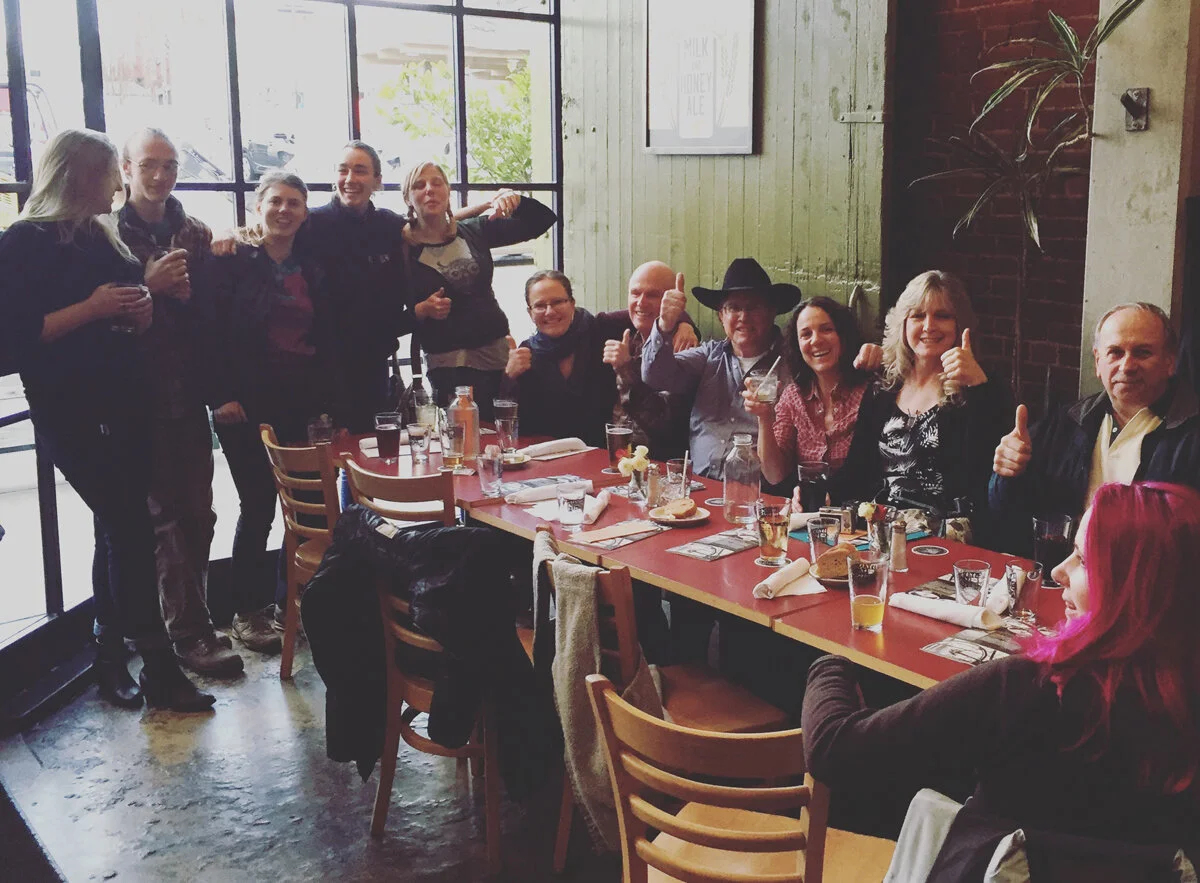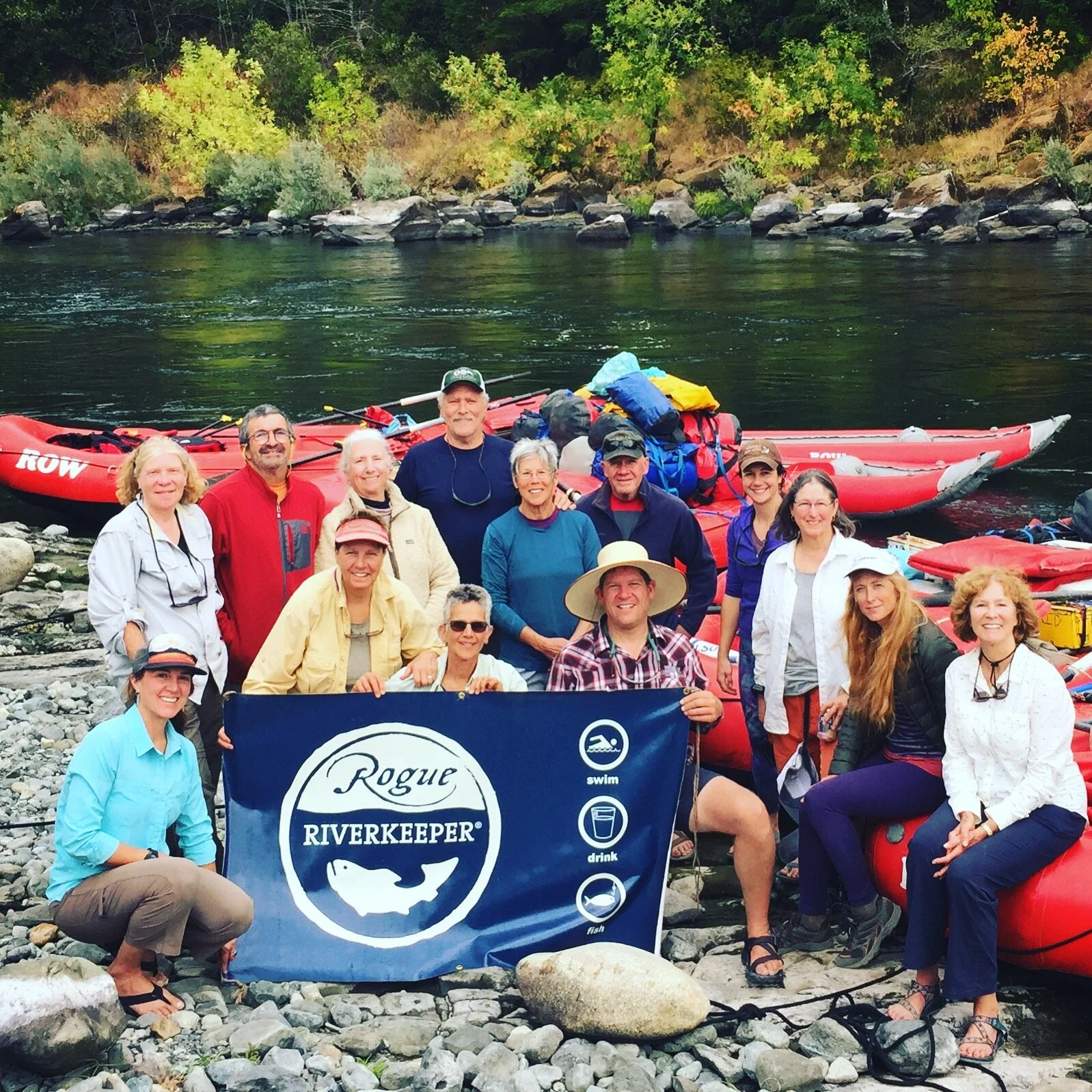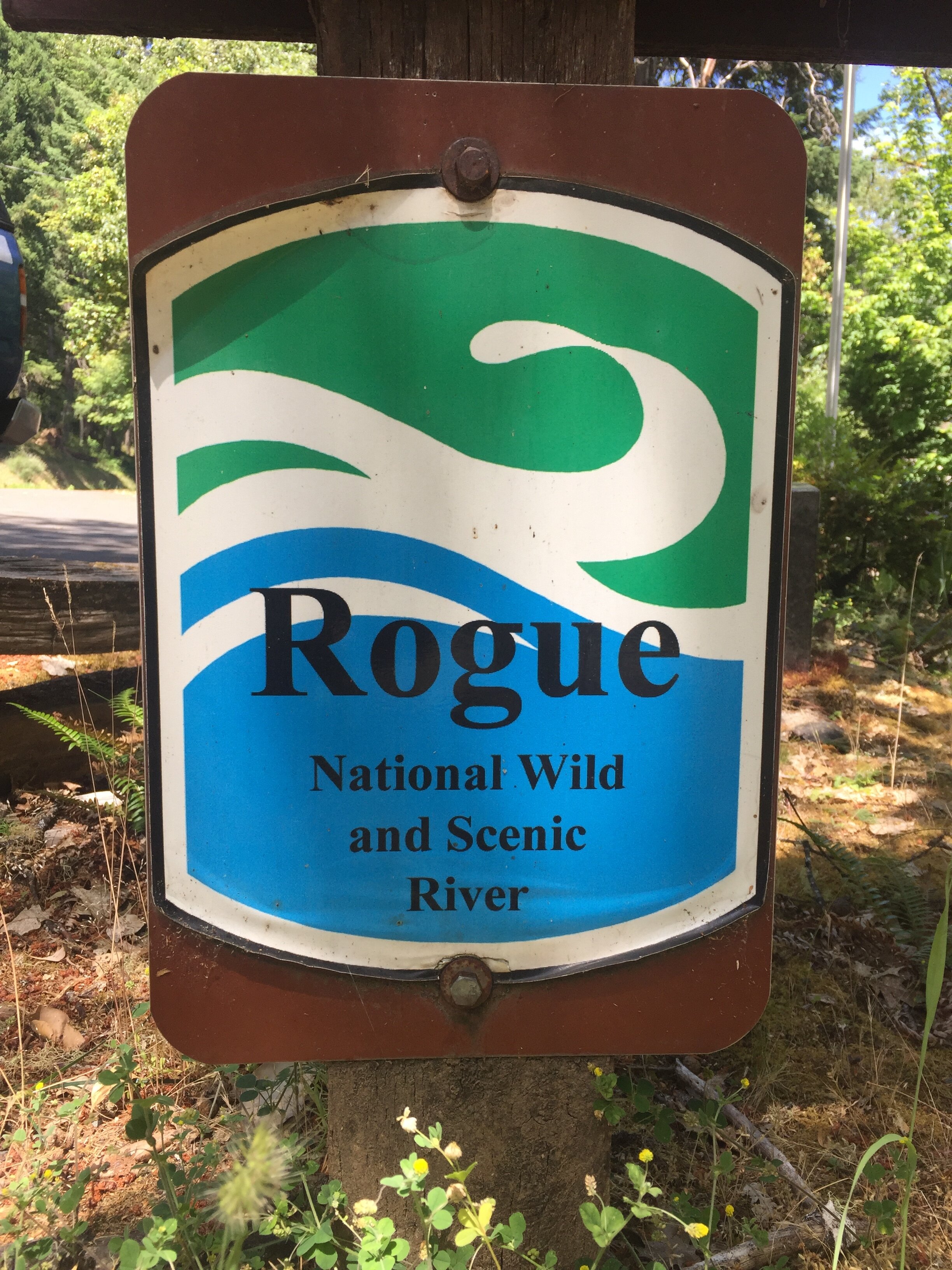Rogue Riverkeeper Celebrates 10 Years!
In 2009, KS Wild staff member Lesley Adams saw a niche for aquatic advocacy in the Rogue Basin. From suction dredge gold mining and stormwater pollution to dam removal and wild and scenic designations, the Rogue deserved more advocacy, specifically the protections afforded by the Clean Water Act. In 2009 Lesley started the Rogue Riverkeeper program as a member of the Waterkeeper Alliance and we are proud to be the watchdog for
Thanks to strategic thinking, foresight, dedicated staff, and the many who love the Rogue, we have become a force for aquatic advocacy in the Rogue Basin. We have seen many successes over the years including the removal of Gold Ray Dam, growing a base of supporters 3500 strong, and getting legislation passed to prohibit suction dredge mining in over 24,000 miles of waterways throughout Oregon! We've also had plenty of challenges but we keep going because we believe everyone has a right to clean, drinkable, swimmable, fishable waters.
We look forward to celebrating our 10th anniversary with you and at least 10 more years of clean water defense for the Rogue!
SOU student & volunteer Robyn Janssen creates photo postcards to send to elected officials as part of the Save the Wild Rogue Campaign in 2009.
2009
In 2009 Rogue Riverkeeper was born. KS Wild staff member Lesley Adams saw the need for aquatic advocacy in the Rogue River Basin because of threats like suction dredge mining, stormwater pollution, and a massive fracked gas pipeline proposal for the Rogue. KS Wild’s Rogue Riverkeeper program was created and has been a force for clean water in the Rogue Basin ever since.
Rogue Riverkeeper’s first year was full and with only one staff member busy! Focus was primarily on organizational development, getting things up and running and figured out. Campaign focus included Clean Water Act permit reviews, Jordan Cove LNG, Gold Ray dam removal, suction dredge mining, and the Save the Wild Rogue campaign.
Thank goodness Lesley had the foresight, dedication, and determination to create a voice for the river we all love so much.
Cheers to 10 years!
2010
In our second year, we were busy getting our feet wet. And we had a lot to celebrate! In 2010 we….
Founded a monitoring program for pollution permits. Over the past 10 years, we're reviewed and commented on more than 125 Clean Water Act permits for the waters of the Rogue that set limits on pollution. We make sure that polluters, developers, and industries are held accountable for meeting those limits on pollution.
Launched our Water Quality Monitoring Program to test for bacteria pollution. After reports of high levels of bacteria in Ashland Creek, we started our monitoring program in collaboration with the City of Ashland and Southern Oregon University. Findings from our study are being used right now to inform a proposal to pipe the TID canal to protect and conserve water for the City of Ashland. Today, we sample for bacteria pollution at more than 20 sites across the watershed!
Celebrated the removal of the 3rd largest dam on the Rogue. In August 2010, the 100 year old Gold Ray Dam was removed to restore a free flowing river, improving fish passage and habitat. We joined river lovers for a "Victory Float", celebrating as we floated through the dam site, unobstructed for the first time in 100 years.
We are proud of these successes. Join us for another 10 years of victories for the Rogue!
2011
Water quality warnings in Lithia Park
Year three. As watchdog for waterways in the Rogue Basin, we were keeping a close eye on pollution, bacteria, and other impacts to clean water. In 2011, we released a study in partnership with SOU and the City of Ashland on the findings of our water quality samples from 2010.
The City of Ashland was regularly posting “No Wading” signs in Lithia Park because of high bacteria levels in Ashland Creek. To determine the cause of the bacteria, we set sample locations along Ashland Creek from the reservoir to downtown Ashland. We also set sample locations along the Talent Irrigation District’s (TID) canal which runs through the hills of Ashland and then discharges into Ashland Creek above Lithia Park. After a summer of sampling and testing, we determined that the source for the bacteria was in fact the TID canal.
This issue, in turn, created our summer water quality monitoring program which continues to grow and provide a source of information to the public about where it is safe to recreate. Every summer volunteers, managed by an SOU intern, collect water samples from across the valley which are then tested for Ecoli to see if the waterway is safe for human contact. We post the test results to Swim Guide so people can see where it is safe to swim, boat, fish, and recreate. Today, we test more than 17 sites with the help of 10 volunteers and an intern.
Our Ashland Creek bacteria study is still being used today to help inform a decision by the City of Ashland to pipe the canal so as to conserve water and reduce bacteria levels in Ashland Creek.
2012
In 2012, Rogue Riverkeeper launched our “Curb to Creek” program. With partners at the City of Ashland, we set out to mark every city storm drain to help educate folks that all runoff drains directly into our creeks.
We mapped the city and located every storm drain. Then with the help of a stellar volunteer team, we moved throughout town marking each storm drain with markers reading, “No Dumping, Drains to Stream”. The blue and silver markers can still be seen all over town alerting folks to the fact that all runoff from our streets, parking lots, sidewalks, and other impermeable surfaces drains to these storm drains and then directly into our creeks.
We continue to work on stormwater issues throughout the valley acting as one of the few conservation voices supporting stronger regulation and enforcement for stormwater permits in our cities and towns and encouraging green infrastructure in local development.
Click here to learn more about our work on limiting polluted runoff in the Rogue Basin to protect clean water and fish.
2013
2013 was a year of transition and change, growth and discovery.
Lesley Adams, founder and original Rogue Riverkeeper moved on to join the Waterkeeper Alliance to work with Waterkeepers across the West. After 4 years of leading the organization, Lesley saw an opportunity to continue to work to protect the Rogue as well as watersheds throughout the Pacific Region.
Forrest English became the Rogue Riverkeeper taking the organization into it’s next chapter focusing on suction dredge mining reform, stopping the Jordan Cove LNG project, and wastewater treatment plant impacts in the Rogue Basin. Forrest’s knowledge of the Rogue Basin and the Clean Water Act put him in position to lead the organization’s policy work for the next 3 years.
Robyn Janssen was hired on as Clean Water Campaigner to create and grow Rogue Riverkeeper’s membership and outreach programs. In 2013, she developed Rogue Riverkeeper’s membership program welcoming on 200 new members as well as creating an annual Celebrate the Rogue Raft Trip & BBQ and the first year of hosting the Wild & Scenic Film Festival.
Lesley Adams, Founder of Rogue Riverkeeper
Forrest English, Rogue Riverkeeper 2013 - 2016
Robyn Janssen, Clean Water Campaigner and now Rogue Riverkeeper.
2013 was an important year for Rogue Riverkeeper with the creation of our outreach and membership programs. We were on our way to becoming more visible within the community being recognized as the voice and watch dog for clean water in the Rogue Basin.
2014
In 2014, Rogue Riverkeeper was busy getting out into local communities to grow our No LNG and Suction Dredge Mining campaigns. We held rallies, events, presentations and more to spread the word and get others to stand up for the Rogue!
A No LNG Rally in Shady Cove brought out 100 people to show opposition to the project.
We hosted our 2nd annual Celebrate the Rogue Raft Trip & BBQ and joined over 100 people on the river and for a riverside BBQ.
We also hosted our 2nd annual Wild & Scenic Film Festival to a crowd of over 300 at SOU. We were making a name for our relatively unknown two person program and people were starting to catch on. However, our work to stop harmful projects and activities in waterways in the Rogue Basin was being pushed to the limits with only two staff and limited resources. Momentum was growing, but our capacity to cover multiple campaigns with only two people was not.
Sarah at a No LNG Rally in Medford, 2015.
As the No LNG campaign ramped up, we fixed our sights on hiring some part time help to help get turn out for upcoming FERC hearings. Thanks to a recommendation by our campaign partner and friend Hannah Sohl, we offered a part time position to local organizer Sarah Westover. It was one of the best decisions we’ve ever made!
Sarah picked up the campaign and ran with it! With only two weeks to organize, Sarah and a team of volunteers got over 300 people to show up to a FERC hearing in Medford where floor space and hallways were utilized to fit everyone into the room. Sarah not only exceeded our expectations but she turned a slow, quiet campaign into the biggest campaign that Rogue Riverkeeper has ever been involved with.
Thanks to her determination and hard work, the No LNG, No Pipeline campaign is a statewide issue with thousands of people engaged to Stop the Jordan Cove LNG project.
Thank you Sarah!
2015
2015 marked the year of big action for our No LNG Campaign! After record turn out to FERC hearings that winter, a statewide coalition grew, focusing on a targeted event at Oregon’s capitol. Hundreds came from across the state to “Rally for our Home” and against the Jordan Cove LNG project. People of all ages attended wearing red and holding signs with the hopes that Governor Kate Brown would listen and stand with Oregonians against this dangerous proposal.
In attendance was Robert F. Kennedy Jr., president of the Waterkeeper Alliance, who spoke to the crowd of 700+ people encouraging folks to continue to fight dirty fossil fuel export proposals to protect waterways, the climate and our communities. The rally was one of the largest ever held on the capitol steps and the message was loud and clear, “NO LNG! NO PIPELINES!”
After the rally in Salem, Bobby joined Rogue Riverkeeper staff for a fundraiser event to support our work to stop Jordan Cove LNG and protect the Rogue. We were honored to spend an evening with RFK and Rogue Riverkeeper supporters at Roxy Ann Winery learning about the dangers of fossil fuel export projects and what we all can do collectively to stop them.
2015 also marked the beginning of our first full season of our volunteer led water quality program. With our SOU intern Eric and 5 dedicated volunteers, we were able to test water across the region for E coli to let folks know where it was safe to recreate. Using the Swim Guide app, community members are able to check real time data to see if the Rogue, Illinois, Applegate and other local waterways are safe to swim in. It was a great first year and our water quality program has grown and become more and more popular ever since.
2016
2016 marked a year of transition and change as well as huge victory for our little team. Rogue Riverkeeper Forrest English moved on from the organization leaving behind a legacy of hard work and dedication protecting the Rogue especially through our suction dredge mining reform campaign. With Forrest’s departure, Robyn Janssen stepped into the role of Rogue Riverkeeper and quickly went to work looking for a stellar teammate to oversee the organization’s conservation programs.
In July, after months of organization restructure, job applicants, and interviews, we hired Stacey Detwiler as Conservation Director. Stacey came to us with years of experience working for American Rivers and a recent graduate degree in Water Resources Policy and Management from OSU. She stepped right in and got to work! Little did we know what an amazing asset to the organization she would be.
Since then, Stacey has led all of our conservation programs focusing specifically on suction dredge mining reform, stopping the Jordan Cove LNG project, and working to get better protections for waterways on private forest lands in the Siskiyou region.
In March and December of 2016, we celebrated a huge victory when the Federal Energy Regulatory Commission (FERC) denied the certificate for the Jordan Cove LNG project. The initial denial came in March when the FERC stated, “Because the record does not support a finding that the public benefits of the Pacific Connector Pipeline outweigh the adverse effects on landowners, we deny Pacific Connector’s request for certificate authority to construct and operate its project, as well as the related blanket construction and transportation certificate applications”.
While we assumed the company could challenge the decision and our work was not yet done, we celebrated none the less with landowners and activists from around the state.
On December 9th, FERC came back with their final decision to stick with their original denial of the Jordan Cove LNG project based on their original findings. However, because of the recent election results, 3 days later the company announced that it would be reapplying in January once the new administration was sworn in.
And our work to stop Jordan Cove LNG continues…..
2017
In 2017 we celebrated a huge win that was fueled by a significant loss.
For over seven years, we and many others in the region, had been working to reform the practice of suction dredge mining in waterways in the Rogue Basin. California had banned the activity in 2009 which brought many hobby miners to the Rogue, Illinois, and Applegate rivers. In 2010, Gold Ray Dam was removed sending tons of sediment downstream and through many suction dredges waiting downstream. The Rogue soon became the “hotspot” for suction dredge mining activities creating a significant issue for the river, its fish and other recreational users.
Suction dredge with tailing piles.
Suction dredge miners in the Illinois River.
Rogue Riverkeeper lead a coalition of groups focused on prohibiting the in-stream mining practice with the legislative support of Senator Dr. Alan Bates. Senator Bates was a long time Rogue Valley resident and fly fisherman who clearly understood the impacts of suction dredging in clean water rivers and sensitive fish habitat. He was the champion on efforts to place a moratorium on the practice which eventually went in place in 2016. Sadly, in August of 2016, Senator Bates passed away but rightfully so along the banks of the Rogue River.
Governor Brown signing SB 3.
Happy coalition partners!
We continued to lead the coalition of groups fighting hard for permanent legislation to prohibit suction dredge mining in the Rogue. Finally, in June of 2017, we succeeded! Senate Bill 3, named in honor of Senator Bates district was passed in honor of the late Senator and the famous river he loved so much.
Today, over 24,000 miles of Oregon’s salmon bearing rivers and streams are protected from suction dredge mining thanks to Senator Bates, a statewide coalition of conservation groups and river users, and Rogue Riverkeeper.
2018
Happy 50th Anniversary to the Wild & Scenic Rivers Act!
2018 marked 50 years since the Wild & Scenic Rivers Act was signed into law in 1972. Our beloved Rogue River is one of the original eight designated Wild & Scenic Rivers so we had much to celebrate! From a robust 5 part speaker series highlighting the Act to a huge riverside celebration to river trips and happy hours, we did our fair share to promote and celebrate our Wild & Scenic Rogue.
We not only celebrated but also used the 50th anniversary to promote a bill to expand Wild & Scenic designations along the Rogue and other important waterways throughout Oregon. The Oregon Wildlands Bill introduced by Senator Wyden aimed to see 146 miles of tributaries to the Rogue designated as Wild & Scenic and in late December of 2018, got included in a massive public lands bill with bi-partisan support.
Rogue Riverkeeper and allies heavily promoted the bill through events and got over 1000 postcards signed and delivered to Senators Wyden and Merkley in support of the Rogue.
2018 also welcomed a new Rogue Riverkeeper staff member! Sara Mosser became part of the team in June as Outreach Coordinator, overseeing our Water Quality monitoring, volunteer, outreach and events programs. Sara came to us with several years of experience with riparian restoration, urban planning, agricultural work and event planning as well as an enthusiasm for the natural world and sharing it with others. We were thrilled to have another team member and more capacity to do even better work in protecting the Rogue!
On top of hiring a new staff member and celebrating the 50th anniversary of the Wild & Scenic Rivers Act we were also hard at work dealing with the 401 Clean Water Act permit application for the Jordan Cove LNG export project. The 401 permit is a necessary state permit that the project needs to move forward and explains how construction and operation of the project will impact over 450 waterways throughout southern Oregon. This permit and its associated impacts to upper Rogue Basin are the reason Rogue Riverkeeper got involved in this campaign over 10 years ago.
Stacey Detwiler, our Conservation Director, spent countless hours pouring over the hundreds of pages in the permit application, carefully pulling out every little detail and potential impact to include in our comments to the Department of Environmental Quality (DEQ). At the end of the summer she had written nearly 200 pages of comments to deliver to the DEQ with all of our concerns for the project’s clean water impacts if the permit were granted.
With the information Stacey pulled from the application, we worked with coalition partners to host comment writing workshops to help concerned citizens write their own comments on the impacts the project would have on waterways in southern Oregon. When the comment period ended in August, over 45,000 comments had been delivered to the DEQ on the permit application, a record for any DEQ permit application of this sort.
2019
Rogue Riverkeeper celebrates 10 years of Clean Water Defense!
In 2019, we saw some big victories for clean water defense in the Rogue.
After a big push in 2018, the Oregon Wildlands Act was included in a massive public lands package that passed with bi-partisan support in March of 2019. 146 miles of Wild Rogue tributaries are now protected under the Wild & Scenic Rivers Act safeguarding clean, cold water for the Wild Rogue River.
2. In May, the Oregon Department of Environmental Quality (DEQ) used our coalition comments to DENY the 401 Clean Water Act permit for the Jordan Cove LNG export project! Oregon DEQ denied the Clean Water Act Section 401 permit because the massive LNG export terminal and pipeline could not demonstrate that their impacts to waterways would meet Oregon's clean water standards. Jordan Cove LNG and the Pacific Connector Pipeline cannot be built without the state permit. With their denial, DEQ released 200 pages of detailed findings about how the project does not meet Oregon’s water quality standards.
3. In July, the Oregon Board of Forestry voted 5-2 to accept a petition for rule making on coho salmon. The petition was brought by 22 different conservation and fishing groups under a rarely used portion of the Forest Practices Act which requires the Board to consider forest protections on private and state land when species are listed under state or federal endangered species acts. The Board is required to identify “resource sites” for listed species and subsequently develop rules to protect these species if threatened by state and private logging practices.
Photo by Eiko Jones, Wild Salmon Center
4. After a successful summer of collecting and testing water from popular recreation sites across the valley, we released our Rogue Basin Water Quality report card. The results of the 2019 water quality monitoring season reveal that many of the sites consistently met the Oregon Department of Environmental Quality’s bacteria water quality standard. Waterways that tested high for levels of bacteria contamination included Little Butte Creek through Eagle Point, Bear Creek and Baby Bear Creek at Bear Creek Park, and Wagner Creek in Talent. Possible sources of bacteria pollution include urban development, polluted runoff, and irrigation return flows. This year’s report card also highlights water quality monitoring in Bear Creek, including two new sites added.
5. On November 8th, we hosted our 7th, sold-out Wild & Scenic Film Festival! Over 400 film and river lovers packed the Historic Ashland Armory to celebrate Rogue Riverkeeper’s 10 years of Clean Water Defense. Thanks to all who came support our work for clean water in the Rogue!
